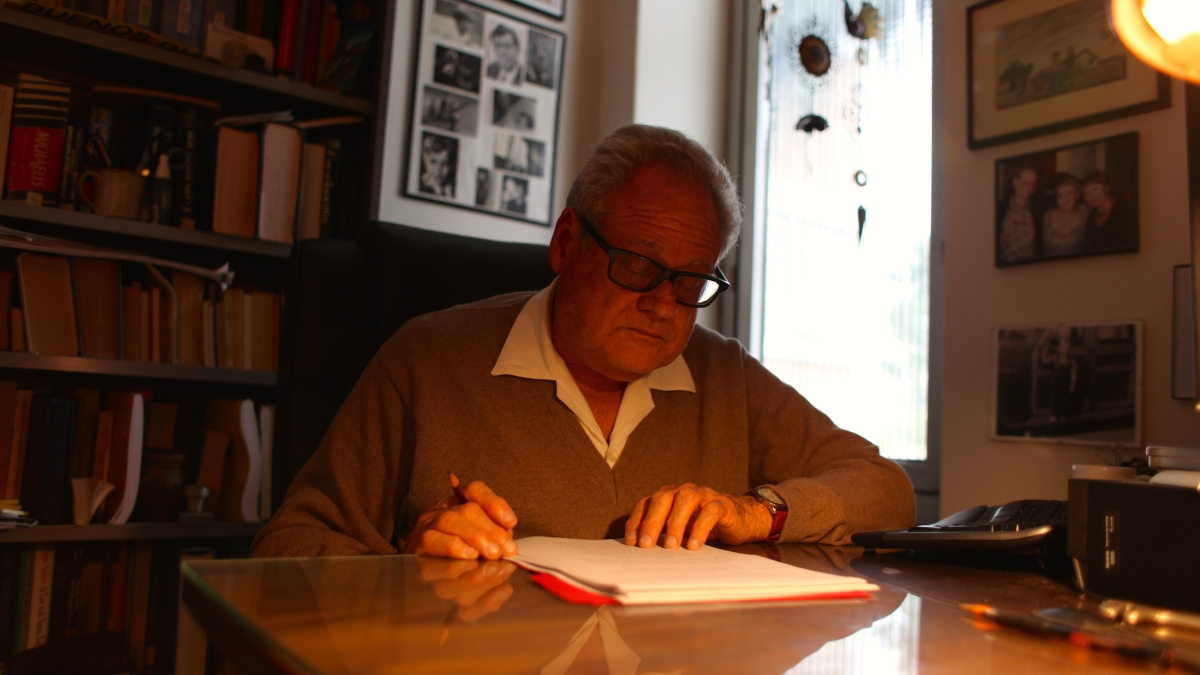ASU humanities scholar lauded for international research, local impact

“Humanities is all about the description of the human soul and the life that soul lives,” says Regents' Professor David William Foster of ASU’s School of International Letters and Cultures.
Foster, professor of Spanish, and women and gender studies, believes in the importance of the humanities in higher education, and the numerous awards and accolades he has received throughout his 49-year career at ASU testify to his role as an educator and scholar in the field.
This academic year he adds two more honors to his trove as the 2014 recipient of both the Premio Victoria Urbano de Reconocimiento Académico (Victoria Urbano Academic Achievement Award) and the Arizona Humanities Dan Shilling Public Humanities Scholar Award.
Describing himself as a male feminist, Foster writes extensively about women and the impact gender-related issues have on society and popular Hispanic culture. His work in this area led the Asociación Internacional de Literatura y Cultura Femenina Hispánic (AILCHF, or the International Association of Hispanic Feminine Literature and Culture) to chose Foster as the first man to receive the Premio Victoria Urbano de Reconocimiento Académico in the organization’s more than 30-year history.
AILCHF aspires to increase the investigation and diffusion of cultural Hispanic productions concerning feminist studies. Foster credits his female peers during his days as a university student for heightening his interest in feminist studies: “From the day I walked into the university in 1958, with my high school diploma, to the day I walked out in 1964, with my PhD, I had one woman professor.”
Foster’s research interests focus on urban culture in Latin America, with emphasis on issues of gender construction and sexual identity, as well as Jewish culture.
Robert Joe Cutter, director of the School of International Letters and Cultures, said of Foster’s accomplishments, "David Foster is an outstanding and generous scholar and teacher whose work is known internationally. His interests are manifold, and his many lectures and publications address matters of significant cultural and civic importance."
Foster’s contributions to the humanities extend beyond academe. Arizona Humanities was launched in 1973, and he was one of the founding board members. Foster says that he feels grateful that his efforts to step outside of the classroom setting are recognized and supported by the organization. Describing himself as a public humanist, Foster has a strong commitment to serve the public and bring humanistic perspectives to public issues.
David Foster’s formidable career speaks for itself, according to Melissa Fitch, associate professor of Spanish at the University of Arizona, who nominated Foster for the Dan Shilling Award.
“He has devoted much of his career to serving the people of our state by sharing the richness of our own cultural heritage through his numerous authored, coauthored and edited books and essays on cultural production related to Arizona,” she said.
According to George Justice, dean of humanities in the College of Liberal Arts and Sciences, Foster’s academic and personal endeavors have an impact that resonates at ASU: “David William Foster has been one of the leading humanists at ASU, and, indeed, a national leader in the study of Latin American literature and culture.”
“One of the amazing things about David,” Justice said, “is his complete generosity with students and community members. He is internationally famous, but locally engaged. These recent recognitions highlight both parts of his scholarly genius and public impact. We are very proud of David Foster at ASU.”
Having come to ASU in 1965, Foster is one of the longest-serving professors at the university, and his prolific academic career continues to influence students like Spanish doctoral candidate Patrick Ridge, who commented that developing a relationship with a professor like Foster is invaluable because “he not only cares about his students, he goes out of his way for them.”
Foster considers his academic career a vocation dedicated to further expanding the importance and practice of humanist studies.
“Our society is shaped by culture, our society lives culture,” he said. “Culture is the substance of the daily life of society. The language we speak, the values we hold and the interests we have.”
The School of International Letters and Cultures is an academic unit of the College of Liberal Arts and Sciences.
Written by Monica Mancillas, communications student assistant